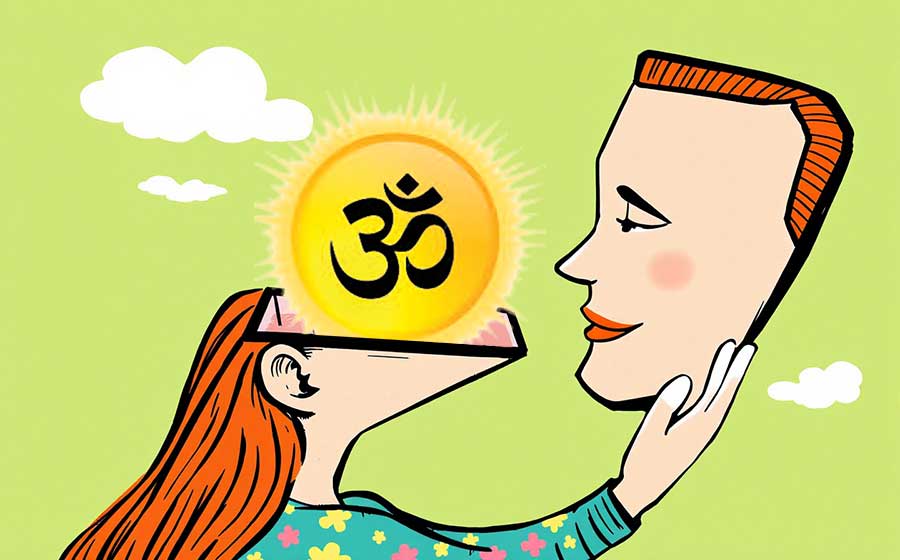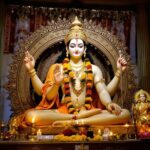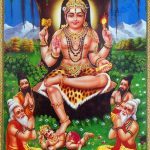How is Advaita Vedanta Different?

Have you ever stopped to think about the nature of your existence? Advaita Vedanta, a profound Indian spiritual tradition rooted in the Indian scriptures, offers a universal and pragmatic approach for exploring this question. It's not intellectual understanding – it's immediate recognition here and now of the nature of who you are: pure Awareness.
Drawing from the Upanishads, the Bhagavad Gita, and the Brahma Sutras, Advaita Vedanta or traditional non-duality provides a step-by-step process for transforming knowledge into actuality.
Whether one is looking for peace within, sense out of life's struggles, or a better grasp of the nature of reality — there's something here for everybody. Here's a glimpse into its essence, its applicability day by day, and how it diverges from other spiritual traditions.
Understanding Pramana: The Means of Knowledge
Advaita Vedanta is what's called a pramana – a valid means of knowledge. Specifically, it serves as a means to Self-Knowledge.
A pramana functions as an instrument through which one arrives at direct understanding of themselves. Consider mathematics as a parallel – it serves as a sophisticated means of knowledge for understanding arithmetic relationships.
Similar to mathematics, a pramana provides concrete concepts that your mind can engage with consistently. Through this engagement, what begins as intellectual understanding gradually transforms into a spontaneous and effortless vision of Truth.
The Journey from Object Knowledge to Self-Realization
Self-Knowledge in stage of “listening” can be equated to object knowledge – as in “I am now learning about the Self, and that I am that Self, even though I can't see how that's possible”.
Just like when first learning to drive. The road rules and codes are object knowledge, which you are learning – as if it's something “out there – at some time”.
But once you're in the field driving, over some time, these rules or codes get integrated as here-and-now while driving.
Similarly, through practice of Vedanta pramana, the definition of “Self-Knowledge” gets converted from object knowledge to here-and-now, not away-from, not separate-from, instant knowledge of the limitless self.
The Validity and Verification of Vedanta
Thus Vedanta is pramana for Self-Knowledge as revealed by rishis (sages) in deep meditative contemplations. And this revealed knowledge does NOT contradict your own experience, thus it's impossible to refute or disprove (else it would've been done by now throughout hundreds of years of counter philosophies — in which case, Upanishads, Bhagavad Gita and Brahma Sutras wouldn't have survived).
Furthermore, the revealed knowledge is verifiable through logic. Vedanta pramana is not based on beliefs which can't be verified through your own experience (assuming mind is purified enough to see).
Advaita Vedanta vs. Other Spiritual Paths
Every spiritual tradition offers its own unique perspective, and comparing them isn't about deciding which one is “better.” Instead, it's about understanding what makes each path special. Here's how Advaita Vedanta stands out alongside other systems:
Advaita Vedanta
Essence: At its core, Advaita Vedanta teaches that there's no separation between you and reality. You are pure Awareness, the foundation of everything.
Strength: What sets it apart is its emphasis on personal verification. You don't have to wait for future rewards or rely solely on faith – Advaita invites you to test its teachings and experience the truth for yourself, right now.
Buddhism
Essence: Buddhism explores the nature of existence through the lens of shunyata (emptiness), seeing all phenomena as interconnected and impermanent.
Limitation: While it offers profound insights, it often focuses on deconstructing concepts without necessarily pointing to the direct realization of Awareness as Advaita does.
Broader Hindu Traditions
Essence: Hinduism is a colorful tapestry of diverse philosophies and practices, from devotion to rituals to meditation.
Limitation: Many schools cater to different levels of spiritual maturity, but Advaita Vedanta goes straight to the heart of the matter, offering a systematic way to realize your true nature.
Vishishtadvaita & Dvaita
Essence: These schools emphasize a relationship between the individual being and the divine, maintaining a distinction between the two.
Limitation: While these paths celebrate devotion and duality, Advaita Vedanta dissolves all distinctions, revealing the oneness of everything.
Christianity
Essence: Christianity focuses on faith, love, and a personal relationship with the divine, often emphasizing the transformative power of grace.
Limitation: Its strength lies in devotion, but it doesn't provide a logical step-by-step method on HOW to relate to the divine as Advaita does. Advaita teachings are concrete, non-ambiguous and explicit.
In conclusion: Advaita Vedanta's approach is both logical and experiential. It's not about blind belief – it's about discovering for yourself, through inquiry and meditation, that you are the Awareness in which all experiences arise and dissolve.
How Else Does Vedanta Compare to Other Views or Philosophies?
Vedanta differs from other teachings or religions, in that it is a comprehensive viewpoint of hundreds of seers who saw the truth. Just like E=MC2 isn't a product of a single scientist, but a build-up of observing laws of nature for hundreds of years by hundreds of thinkers and scientists, all who contributed their observations to the total pool of scientific knowledge.
As Swami Chinamayananda use to say: “Vedantic teachings are inserted into the fabric of creation itself and so the rishis were able to access them in deep states of meditation.”
All other teachings or religions or philosophies — to the best of my knowledge are largely based on experiences of their founder(s). Conversely, there is no founder of Vedanta and so we don't have to risk drawing from individual's experience (which is always mixed with personal subjectivities and distortions).
Systematic Approach to Self-Knowledge
Vedanta is a highly systematic and scientific revelation of Self-Knowledge.
If one listens to a qualified teacher, then initially (in the shravanam or listening phase) an open mind and faith in the teacher is required.
Throughout the listening, the student is encouraged to express their doubts or objections so the teacher can respond with a counter-objection until the student's understanding is sound. This doubt-removal stage by oneself and by help of the teacher is the mananam stage, and is absolutely crucial, else it becomes merely scholarly education. The point is that the teachings transform your perception, touch your heart, change your perspective on life.
Conversely, in most other teachings, faith is encouraged but doubts are not.
To me, this is an important point which separates it from other teachings: Vedanta has the quiet confidence that it can answer all doubts of the student.
Complete Cosmology
Vedanta offers a complete cosmology. It shows you that you are Consciousness. But it also describes how this world comes out of Consciousness, using an important teaching of maya.
It describes how maya manifests this universe (meaning maya was there before time and space). It also describes in absolute detail the relationship between maya and Consciousness (brahman).
No other teaching or religion is able to describe creation in a way that actually aligns with modern scientific thinking.
Practical Application for Daily Life
Finally, the practices offered by Vedantic teachings for purifying the mind, such as karma-yoga, devotion and pointing out universal ethical values — are desperately needed in today's misguided, materialistically-driven and morally-weak lifestyle which produces constant agitation in our mind.





